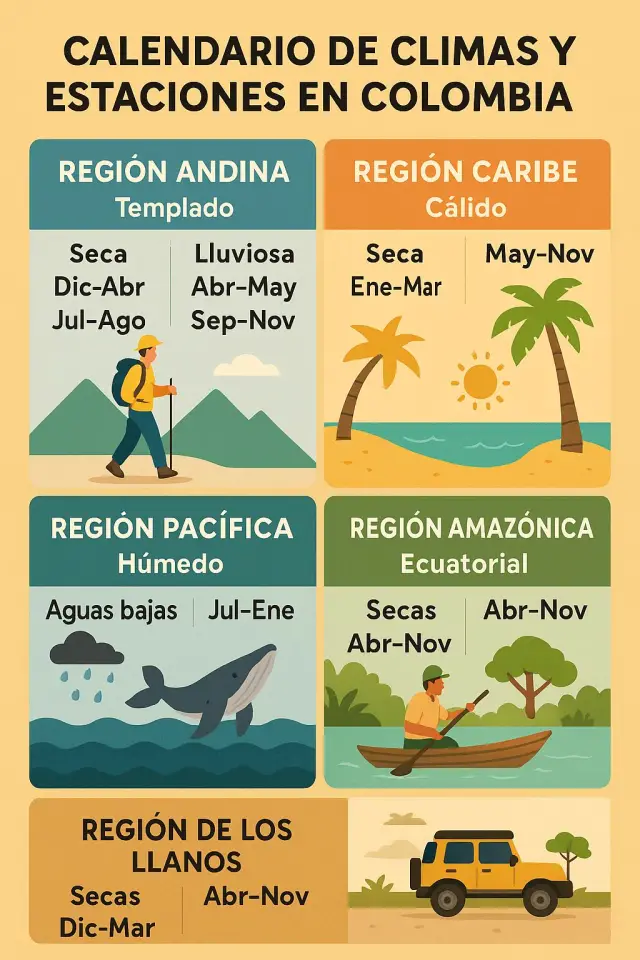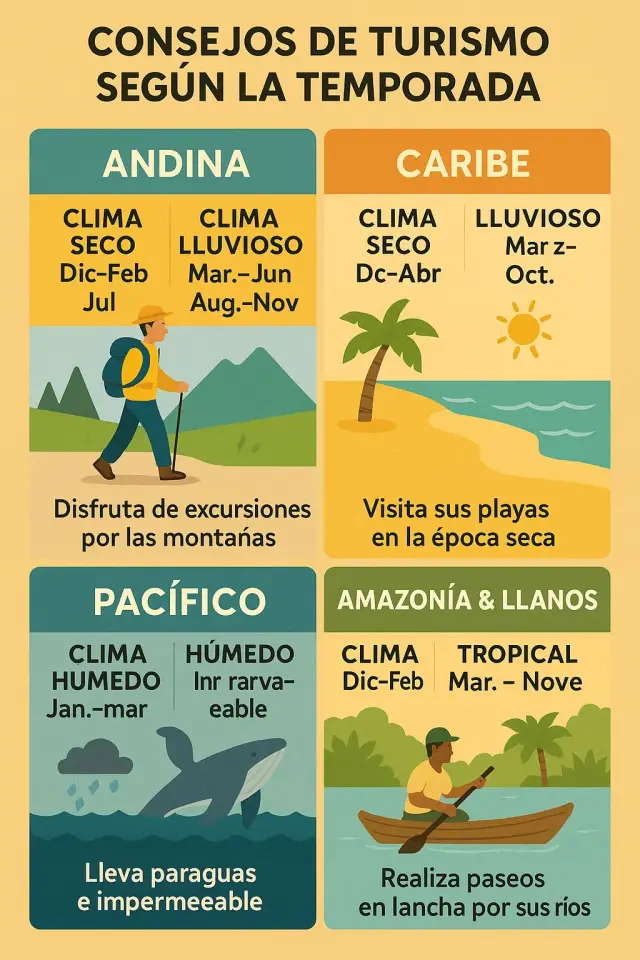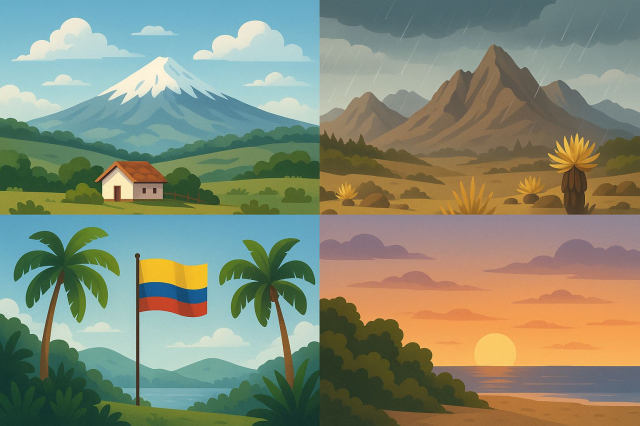Colombia, located in the equatorial zone , has exceptional climatic diversity due to its varied topography . Unlike other countries , it does not experience the traditional four seasons , but is characterized by two main seasons : dry and rainy . These seasons affect each region differently , influencing tourism and cultural activities . Knowing the climate calendar is essential for planning trips and making the most of the experiences offered by each region of the country .
Seasons of the Year in Colombia

In Colombia, the year is divided mainly into two seasons:
Dry season ( summer): From December to March and from July to August.
Rainy season ( winter): From April to May and from October to November.
This division may vary slightly by region , affecting agricultural activities , festivals , and tourism .
Climates and Activities by Region
Andean Region
Climate: Temperate to cold, with temperatures ranging between 10° C and 18 ° C.
Seasons:
Dry: December to March and July to August.
Rainy: April to May and September to November.
Recommended activities :
Visit cities like Bogotá, Medellín and Manizales.
Hiking in natural parks such as Los Nevados National Natural Park .
Participate in local cultural festivals and fairs .
Caribbean Region
Climate: Warm and dry, with temperatures between 24° C and 31° C.
Seasons:
Dry: December to April.
Rainy: May to November.
Recommended activities :
Enjoy the beaches in Cartagena, Santa Marta , and La Guajira.
Explore Tayrona National Natural Park .
Attend the Barranquilla Carnival in February .
Pacific Region
Climate: Humid and rainy throughout the year , with temperatures between 20° C and 26° C.
Seasons:
Less rainy: January to March.
Recommended activities :
Humpback whale watching between July and October .
Explore biodiversity in Chocó .
Visit pristine beaches and Afro-Colombian communities .
Amazon Region
Climate: Equatorial, warm and humid, with temperatures between 23° C and 30° C.
Seasons:
Low water : July to January.
High water : February to June.
Recommended activities :
Navigate the Amazon River and its tributaries .
Carry out ecotourism and wildlife watching .
Visit indigenous communities and learn about their culture.
Plains Region
Climate: Tropical savannah , with temperatures between 19° C and 27° C.
Seasons:
Dry: December to March.
Rainy: April to November.
Recommended activities :
Participate in plains safaris and bird watching .
Enjoy the plains culture and its festivals .
Explore the landscapes by bike or horseback .
General Travel Tips According to the Season

Dry season : Ideal for outdoor activities , festivals and beach tourism .
Rainy season : Recommended for ecotourism and enjoying the lush vegetation .
Always wear clothing appropriate for the region 's climate and protection from rain or sun .
Check the weather forecast before traveling and plan flexible activities .
Frequently Asked Questions
Does Colombia have four seasons of the year?
No, due to its equatorial location , Colombia does not experience the traditional four seasons . Instead , it has two main seasons : dry and rainy.
What is the best time to travel to Colombia ?
It depends on the region and the activities you want to do. Generally, the dry season is preferred for tourism .
Is it safe to travel during the rainy season ?
Yes, but it's important to be prepared for frequent rain and possible interruptions to outdoor activities .
Which regions are most affected by the rains ?
The Pacific and Amazon regions typically experience rain year - round , while other regions have specific rainy seasons .
How does the weather affect tourism activities ?
The weather determines the viability of certain activities , such as hiking , wildlife watching , or outdoor festivals .
